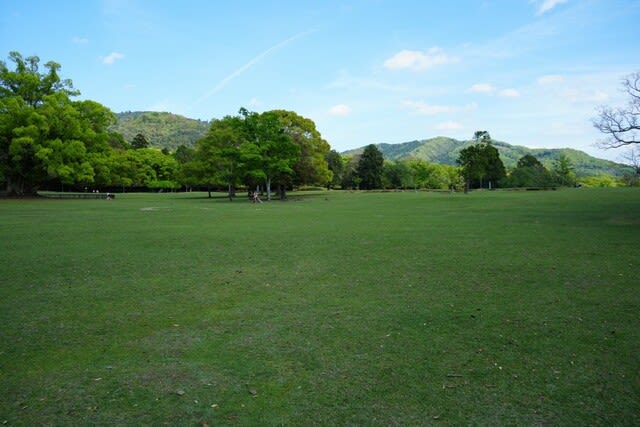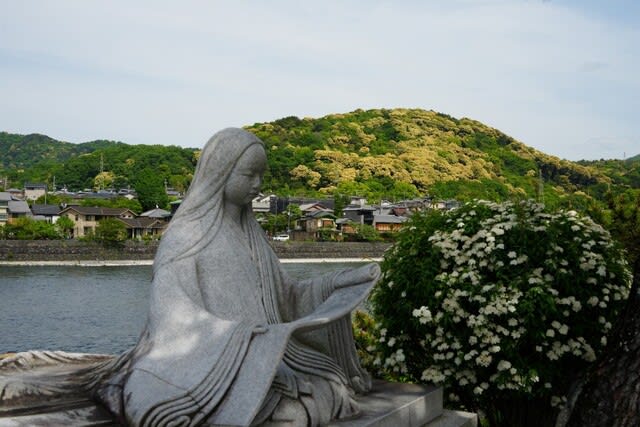When you start talking about identity, this is the kind of story that makes it impossible to use the name "nation," which is beyond the imagination of the Japanese who grew up in an island nation.
April 30, 2018
The following is from Kimindo Kusaka's serial column "Hints for Prosperity" in the April 26 issue of Will, a monthly magazine.
The title of this issue is "The Age of Visceral Problems."
Since the arrival of President Trump, American intellectuals have gone completely quiet.
The call to 'create a new world' has vanished, leaving a void of ideals and dreams, a stark contrast to the vibrant vision of 'this is how the new world should be.'
Instead, the narrative has shifted toward 'sanctions against North Korea.'
It's possible since America, which has the power, is saying it, but it's just one step away from making progress.
There was a noticeable absence of a resolute voice saying, 'Go ahead!'
Even Japanese Prime Minister Abe cannot say, "Japan will do it.''
Japan, the United States, South Korea, and China have stopped at the point where they are trying to put pressure on each other.
There is nothing to worry about, as restricting trade and finance will have sufficient effects.
It would be good to continue for about three years, but I haven't heard anyone say that.
Countries around the world have engaged in short-term diplomacy until now, and it seems that this has become a habit.
In every country, the lifespan of cabinet members is getting shorter, so it's natural for them to think about shorter deadlines for their work.
Now, let's consider long-span diplomacy.
Japan can do that.
That's because we have not borrowed money from anyone.
We have a lot of loans and investments in every country, so if we specify the conditions and declare that we will not lend or invest in these or those countries in the future, then we can do it.
It's as effective as dropping an atomic bomb.
All they have to do is call it the "World Revitalization Policy'' under the Prime Minister's direct control and implement it.
You can expect a much more reliable effect than folding the vines with origami.
Considering that Japan has become that rich, it means that the money the people saved was worth it, but now the money is being spent by the Ministry of Foreign Affairs and the Ministry of Economy, Trade and Industry.
When Chiang Kai-shek was asked by a friend how he would deal with the two problems of the war with Japan and the conquest of the Chinese Communist Party, he replied that the conquest of the Chinese Communist Party was an "internal disease." In contrast, the war with Japan was merely a "skin disease."
Indeed, Chiang Kai-shek lost the battle with the Chinese Communist Party, fled to Taiwan, and never returned.
There are many types of wars in the 21st century, but let's consider them using this classification.
First, many diseases reach the internal organs.
In America, the fight against white supremacy is already deeply entrenched.
The same is true of the gap between rich and poor.
The battle against religious fundamentalists begins now.
The relationship between the American states and the federal government may return to the days of the Revolutionary War.
"Americans who cannot speak English" and "Americans who are not white" will eventually reach the majority.
Still, what do we need to live with pride as Americans?
It is the issue of "visceral disease control and America."
At that time, one idea would be to divide California into Japan and Florida into Spain.
If that were to become a problem, the same problem would have also appeared in Europe.
It is also in mainland China.
There were several Hang provinces in China, such as Yunnan Hang province, which apparently gave up Chinese rule during the Yuan period.
Good gracious
It is beyond the imagination of Japanese who grew up in an island nation that the name "nation" can no longer be used when we start talking about identity.
But in other words, Japan has a long history, and Trump's "peace with high border walls" has already been realized.
The 21st century will be an era in which internal organs become a problem in every country.
At that time, if Japan's disease was the least severe, It would have to tell the world something.
Every country has the glasses to see the new world that has emerged to replace the 400-year-old imperialism.
For example, in the phrase "learn from the past,'' how about reconsidering terms such as "local regeneration,'' "nationalism,'' "division of the nation,'' and "small nationalism.''
Looking at North Korea's efforts against the UN, the idea of "balance through mutually assured destruction" seems to be heading toward an era of "global division and balance by small nations.
What about Japan?
Kimindo Kusaka Born in 1930.
He graduated from the Faculty of Economics, University of Tokyo.
He has served as a director of the Long-Term Credit Bank of Japan, chairman of the Asahi Soft Economy Center, and chairman of the Tokyo Foundation.
He is currently a corporate auditor at Nippon Rad, Mitani Sangyo. His latest publication is "The era of Japan's prosperity has finally arrived" (published by WAC).















